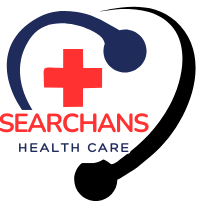Introduction to medical conditions and their impact on daily life
Medical conditions affect millions of people worldwide, influencing how they approach their daily activities, their relationships, and even their emotional well-being. From minor illnesses to chronic conditions, each ailment comes with its unique set of challenges, symptoms, and treatment options. Understanding medical conditions empowers individuals to seek timely intervention, manage their health effectively, and maintain a good quality of life. By gaining insight into the symptoms, causes, and treatments for these health concerns, one can make informed decisions to safeguard their well-being.
Deep dive into common conditions like diabetes, hypertension, and asthma, discussing their symptoms
Certain medical conditions, such as diabetes, hypertension, and asthma, are especially prevalent and impact a significant portion of the population. Diabetes, for instance, is marked by excessive blood sugar levels, which can lead to symptoms like excessive thirst, frequent urination, and fatigue. Hypertension, or high blood pressure, is often silent, yet when left unchecked, it can result in headaches, dizziness, or severe complications like stroke and heart disease. Asthma manifests as difficulty in breathing due to inflamed airways, and it is often accompanied by coughing, chest tightness, and wheezing. Recognizing these symptoms early can make an unparalleled difference in how these conditions are managed.
Discuss the various factors contributing to these conditions, including genetic and lifestyle influences
The causes of many medical conditions are multifactorial, involving a combination of genetic predispositions and lifestyle-related factors. For example, a family history of diabetes significantly increases one’s risk, while a sedentary lifestyle and unhealthy diet may act as aggravating triggers. Similarly, hypertension can arise from genetic markers but is often exacerbated by smoking, poor dietary choices, and stress. Asthma, too, may be hereditary but is heavily influenced by environmental exposures like allergens and pollution. Understanding these contributing factors not only increases awareness but also highlights the significance of making conscious health-related decisions.
Overview of current treatment methodologies, including medications and therapies
When it comes to treating medical conditions, advancements in science and pharmaceuticals have led to a wide range of effective interventions. For example, diabetes management commonly involves blood sugar regulation through oral medications, insulin injections, and monitoring devices. Hypertension is treated with antihypertensive drugs, ranging from ACE inhibitors to beta-blockers. Asthma, on the other hand, often relies on inhalers and corticosteroids to reduce airway inflammation. Beyond medications, non-drug therapies are also proving beneficial, such as physical therapy for respiratory health or stress management programs for hypertension. Patients can often find optimal care by combining traditional and modern methodologies.
Overview of surgical and medical interventions for severe situations of illness
While medications are effective for many, severe cases may require surgical or medical interventions. For instance, once diabetes complications like advanced kidney disease or vision loss occur, procedures such as kidney transplants or laser surgeries for retinopathy may become necessary. For hypertension leading to arterial blockages, bypass surgeries or angioplasty are common. Similarly, severe asthma attacks might necessitate advanced treatments like mechanical ventilation. These measures are typically reserved for critical cases where routine management is insufficient. However, they can serve as lifesaving interventions, reinforcing the importance of early detection and treatment.
Chart Example
|
Condition |
Common Symptoms |
Primary Treatments |
Potential Interventions |
|---|---|---|---|
|
Diabetes |
Excessive thirst, fatigue, frequent urination |
Oral medications, insulin injections |
Pancreatic transplant, dialysis |
|
Hypertension |
Headaches, dizziness, no early symptoms |
Antihypertensive drugs, lifestyle changes |
Angioplasty, bypass surgery |
|
Asthma |
Coughing, wheezing, chest tightness |
Inhalers, corticosteroids |
Mechanical ventilation during severe attacks |
Lifestyle adjustments and preventive measures to manage and mitigate risk factors
The power of prevention often lies in making small yet impactful lifestyle adjustments. For individuals at risk of diabetes, maintaining a healthy weight, following a balanced diet rich in fiber, and exercising regularly are key. Similarly, hypertension risk can be mitigated by reducing salt intake, staying active, and managing stress through techniques like yoga or meditation. Asthma patients may benefit from avoiding allergens, ensuring clean indoor air, and practicing breathing exercises. These preventive measures not only reduce the likelihood of developing these conditions but also improve overall well-being.
The role of early diagnosis and regular check-ups in maintaining health
Early diagnosis is crucial in the successful management of medical conditions. Regular health screenings allow for the detection of issues before symptoms escalate. For example, blood glucose tests can catch prediabetes, enabling lifestyle adjustments to reverse the condition. Similarly, monitoring blood pressure can reveal hypertension early, enabling the use of medications to protect against complications. Asthma, when diagnosed at an early stage, can be managed more effectively with preventive medications. By prioritizing regular check-ups, individuals can stay a step ahead in their health journeys.
The importance of continued research and advancements in medical science
The field of medical science is constantly evolving, and ongoing research holds the key to improved health outcomes. For example, innovations in gene therapy are paving the way for personalized treatments for diabetes. Smart devices now allow hypertensive patients to track their blood pressure in real time, ensuring adherence to treatment plans. Meanwhile, advancements in inhaler technology make controlling asthma more convenient and effective. Supporting medical research is essential for developing cutting-edge solutions to the challenges posed by chronic illnesses.
Empowering readers with knowledge for better health outcomes
By understanding the symptoms, causes, and treatment options for medical conditions, individuals can take the lead in managing their health. Whether through lifestyle adjustments, early diagnosis, or leveraging modern treatments, there is a wealth of actionable strategies available to improve outcomes. Remember, knowledge is a powerful tool when it comes to combating health issues. Stay informed, prioritize regular check-ups, and consult professionals to make educated decisions about your well-being.




